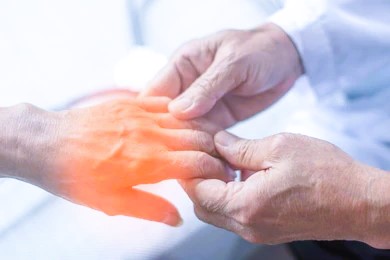Peripheral Neuropathy: Causes, Symptoms, and Treatment
Discover the causes, symptoms, and treatment options for Peripheral Neuropathy. Learn how to manage and alleviate this condition effectively. #Peripheral Neuropathy


Peripheral neuropathy is a condition that affects the peripheral nerves, which are responsible for transmitting signals between the brain and spinal cord to the rest of the body. When these nerves are damaged or malfunctioning, it can lead to a range of symptoms and complications.
Causes of Peripheral Neuropathy
There are several potential causes of peripheral neuropathy, including:
Diabetes: High blood sugar levels can damage the nerves over time.
Autoimmune diseases: Conditions such as rheumatoid arthritis or lupus can cause inflammation that affects the nerves.
Infections: Certain viral or bacterial infections can damage the nerves.
Exposure to toxins: Chemicals, medications, or excessive alcohol consumption can lead to nerve damage.
Inherited disorders: Some individuals may have a genetic predisposition to developing peripheral neuropathy.
Symptoms of Peripheral Neuropathy
The symptoms of peripheral neuropathy can vary depending on the type of nerves affected and the underlying cause. Common symptoms include:
Numbness or tingling in the hands or feet
Sharp or burning pain
Muscle weakness or paralysis
Sensitivity to touch
Lack of coordination or balance
Difficulty walking or performing daily tasks
Treatment for Peripheral Neuropathy
While peripheral neuropathy cannot always be cured, there are various treatment options available to manage symptoms and slow down the progression of the condition. Treatment approaches may include:
Medications: Certain medications can help relieve pain, reduce inflammation, and improve nerve function.
Physical therapy: Exercises and therapies can help strengthen muscles, improve balance, and enhance mobility.
Transcutaneous electrical nerve stimulation (TENS): This therapy involves the use of low-level electrical currents to relieve pain and stimulate nerve function.
Alternative therapies: Techniques such as acupuncture or massage may provide symptom relief for some individuals.
Lifestyle changes: Managing underlying conditions, such as diabetes or alcohol abuse, can help prevent further nerve damage.
It is important to consult with a healthcare professional to determine the most appropriate treatment plan for individual circumstances. They can provide a proper diagnosis, identify the underlying cause, and recommend personalized treatment options.
In conclusion, peripheral neuropathy is a condition that affects the peripheral nerves, leading to a range of symptoms and complications. Understanding the causes, recognizing the symptoms, and seeking appropriate treatment can help individuals manage the condition and improve their quality of life.
